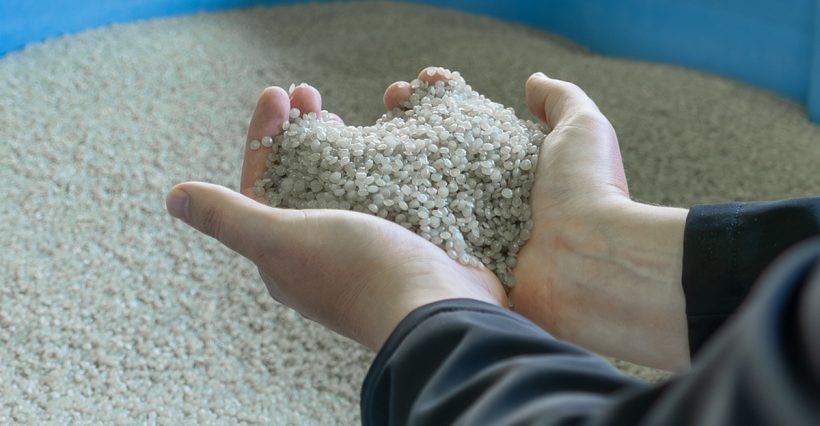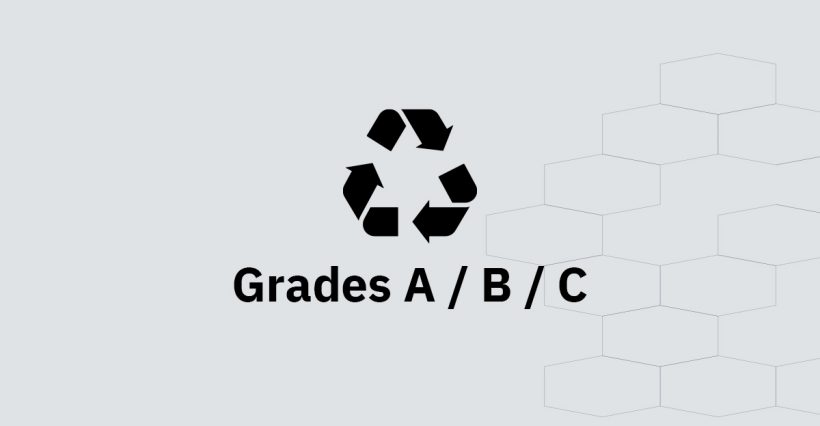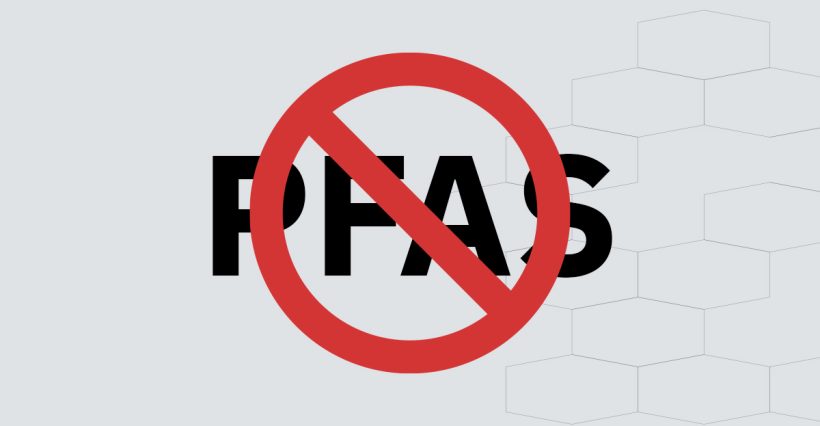The terms PIR and PCR refer to recycled plastic, but the difference is in the origin of the material:
PIR (Post Industrial Recycled):
This material is recycled from production waste generated within industrial processes, such as cutting waste or defective products.
PCR (Post Consumer Recycled):
This material is recycled from waste discarded by consumers, such as packaging or plastic bottles.
Both types of recycled plastic play an important role in the circular economy and contribute to making packaging more sustainable.
Why choose recycled plastic as PIR or PCR?
Demand for PIR and PCR is growing due to the increasing need for sustainable packaging materials. KIVO offers solutions for both types of recycled plastic and helps companies comply with stricter regulations, such as the EU Plastic Packaging Waste Regulation (PPWR).
What does KIVO do with PIR?
Our PIR materials are produced in our own recycling plant, KIVO Recycling. Here, we process production waste from our plants into high-quality raw materials that can be reused. This process is an important part of our strategy to minimise waste and support the circular economy.
Read more about our recycling processes on the page of KIVO Recycling.
What does KIVO do with PCR?
For PCR materials we have the specialised recycling plant REKS. Here, waste such as used plastic packaging from supermarkets is processed through mechanical recycling. This produces high-quality recycled plastics that can be used again in new packaging.
More information can be found on the page about PCR plastic.
PIR and PCR: the benefits
| Feature | PIR | PCR |
|---|---|---|
| Source | Manufacturing waste within industry | Consumer waste after use |
| Origin | KIVO production surpluses | Supermarkets, households |
| Environmental impact | Reduces industrial waste | Reduces plastic waste in the environment |
| Applications | Non-food & direct-food contact packaging | Non-food packaging |
Why choose KIVO?
At KIVO, we combine sustainability and functionality in all our products. Our recycling capacity enables us to provide customers with tailor-made solutions that meet the latest environmental friendliness requirements. Our in-depth knowledge of legislation such as the PPWR allows us to guide our customers through the complex landscape of sustainability regulations.



